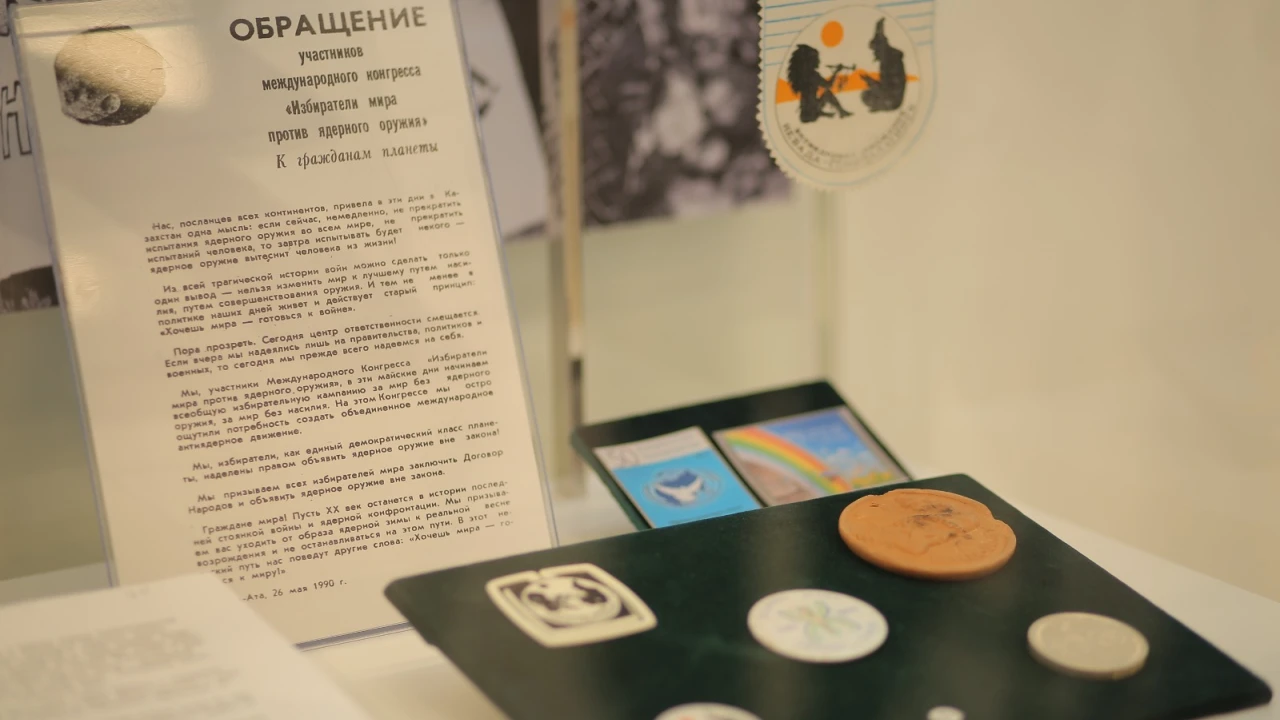
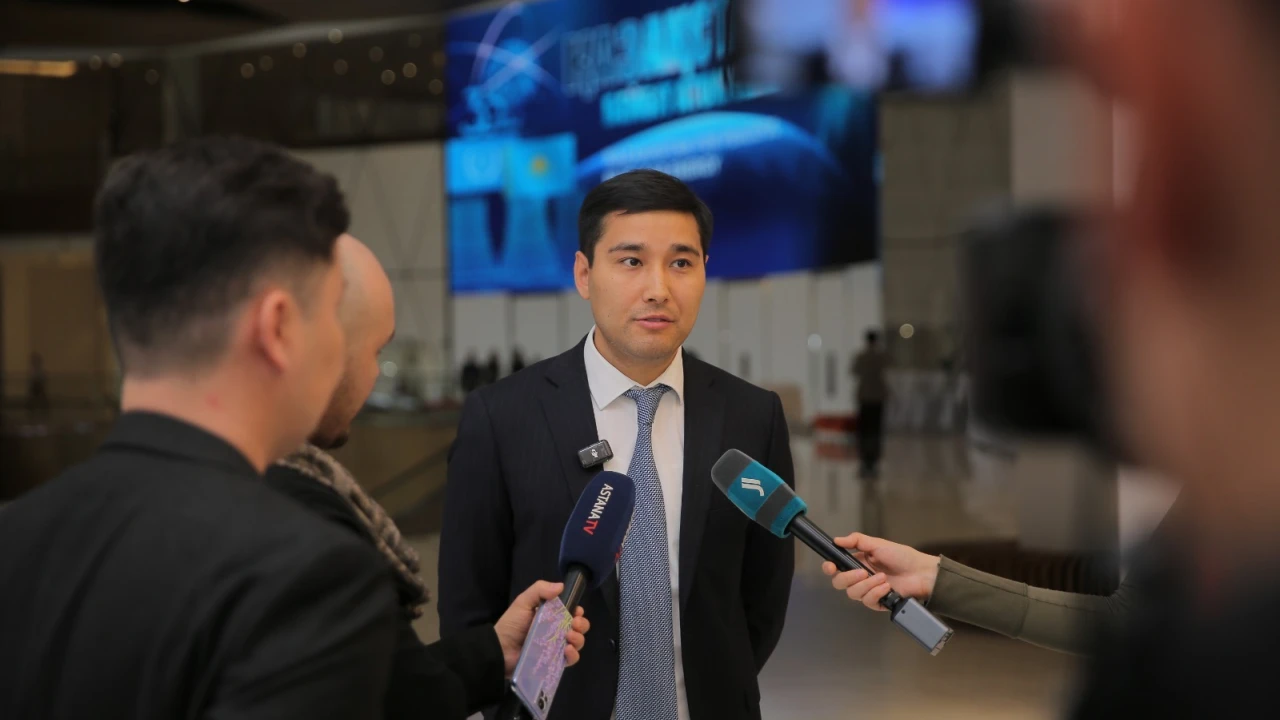
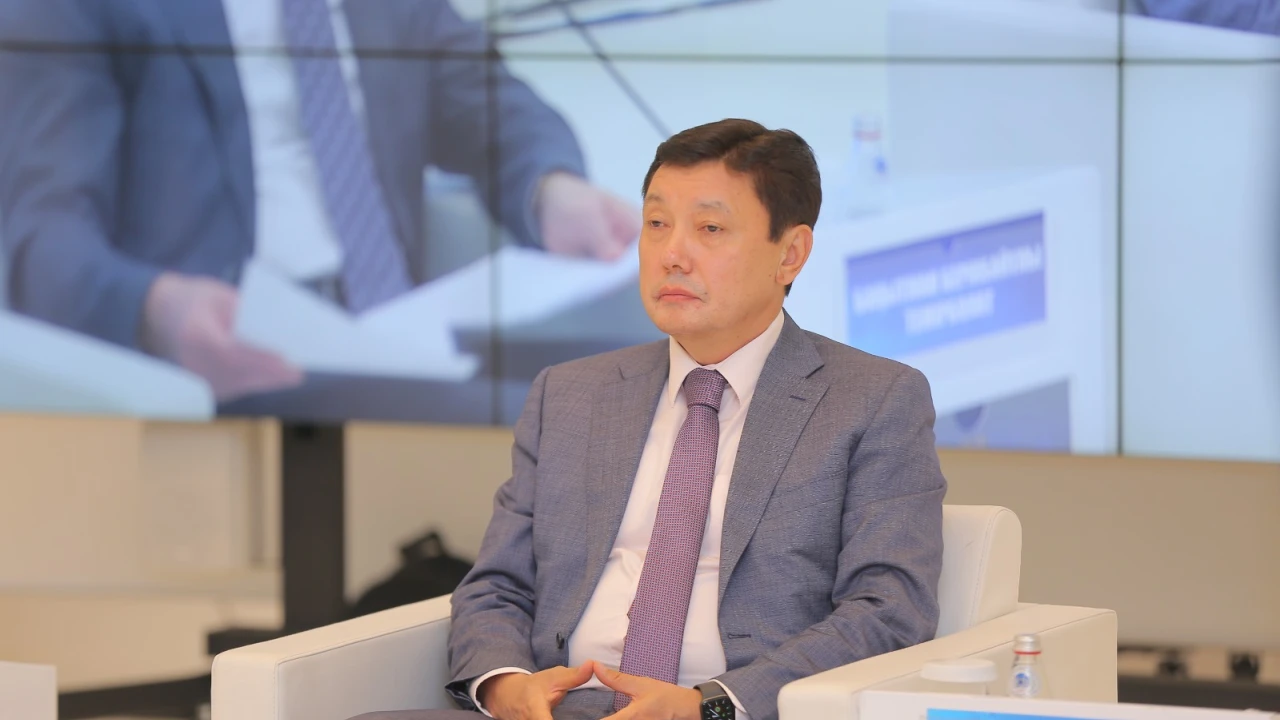
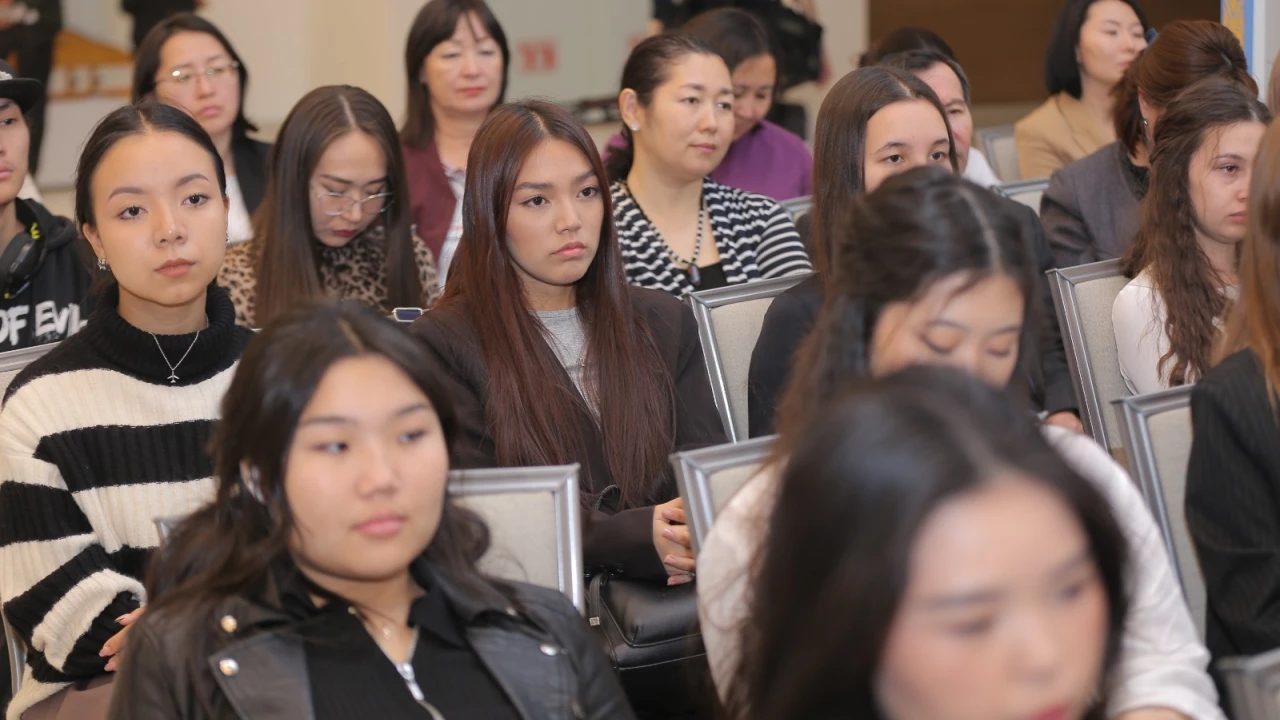
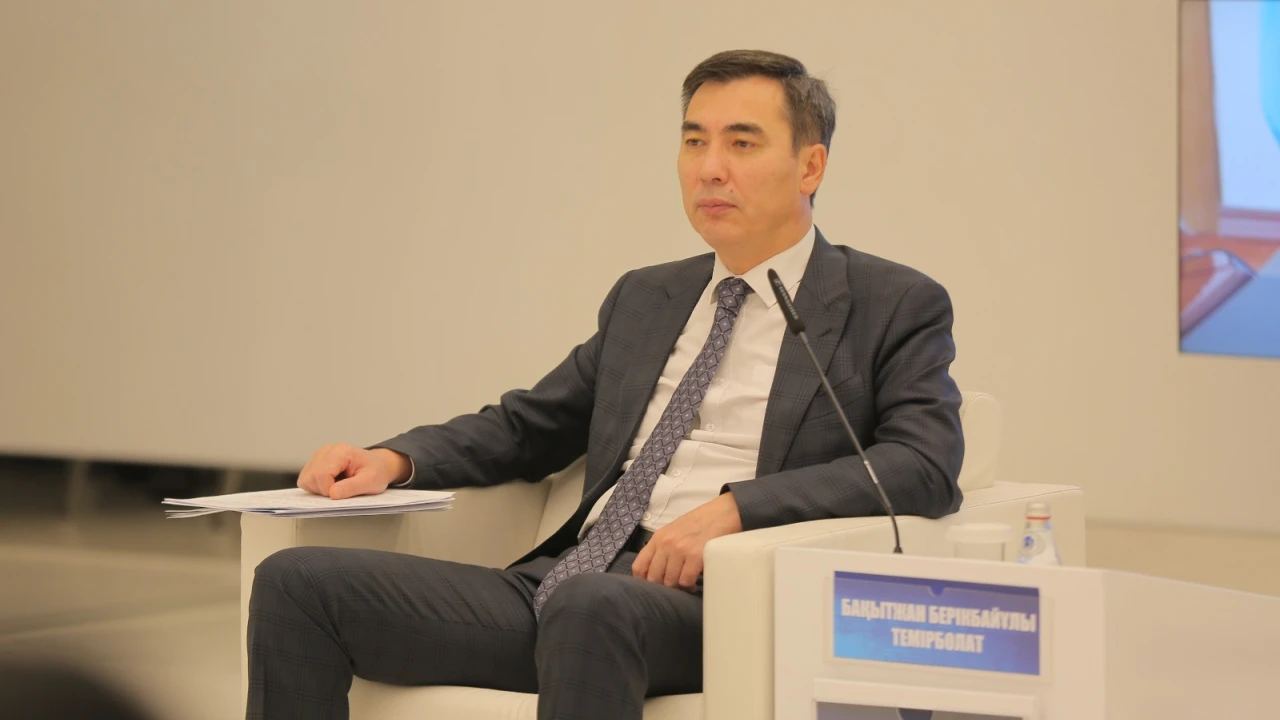
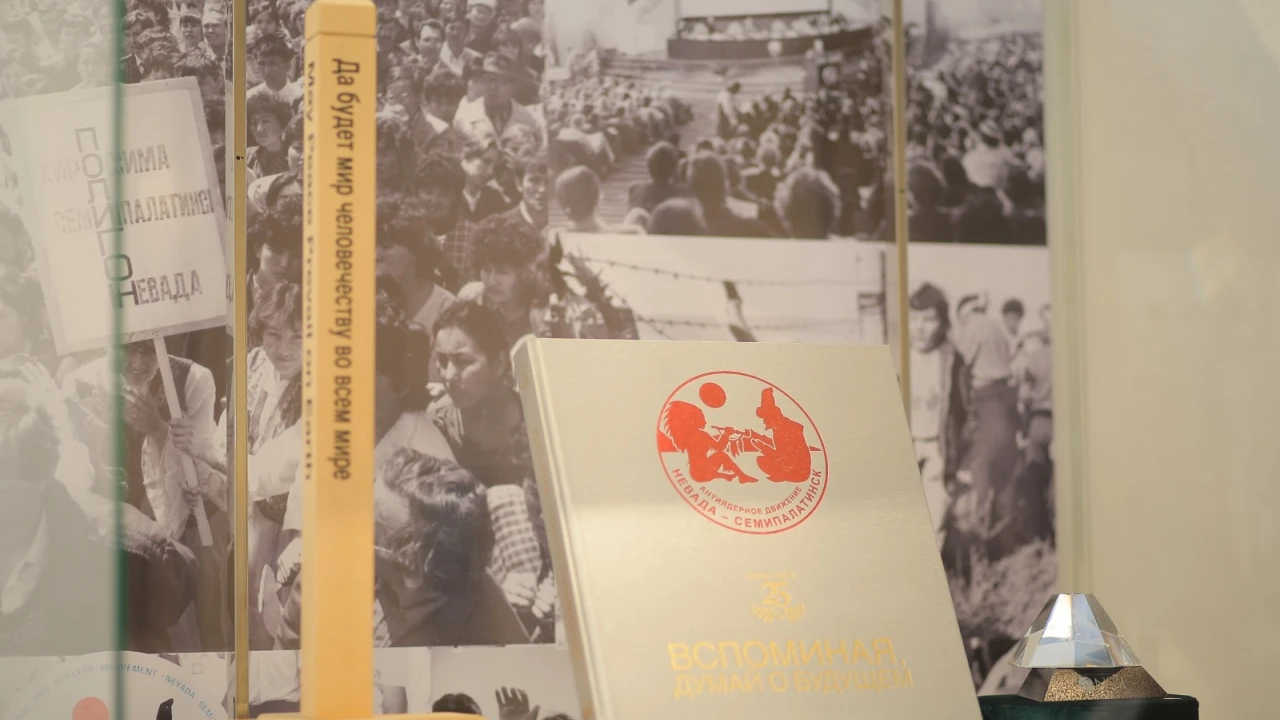
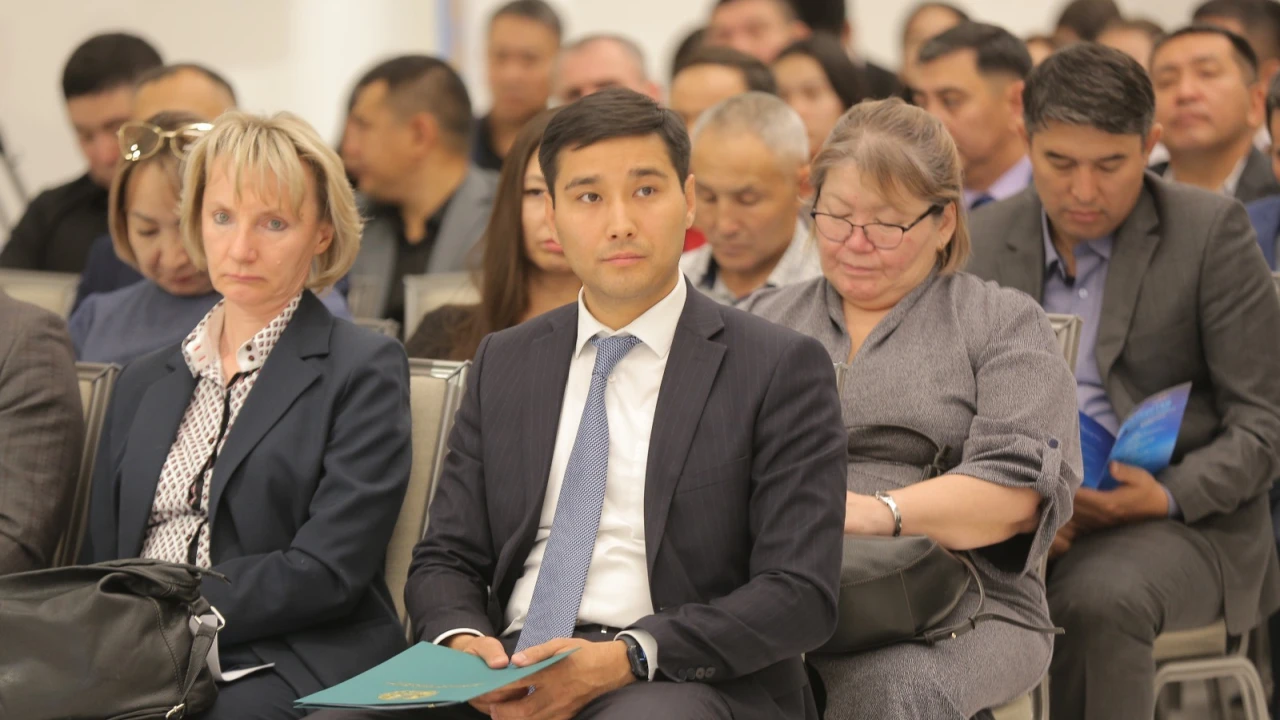
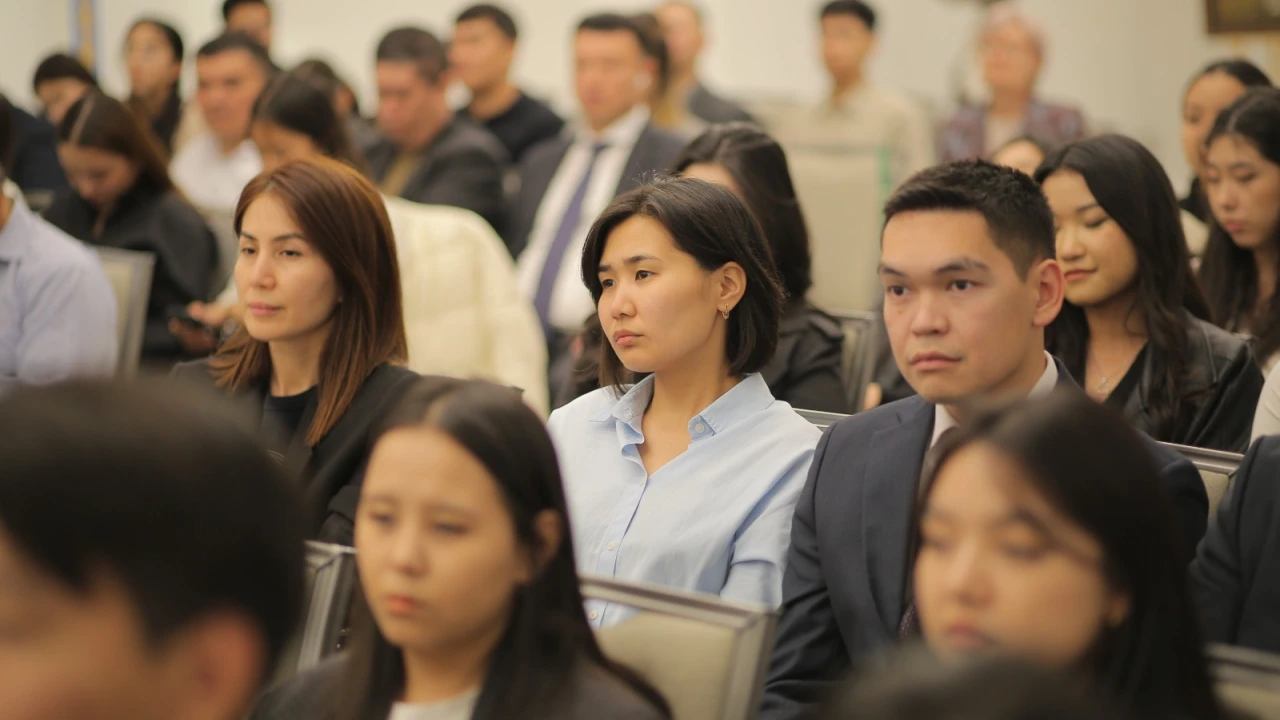
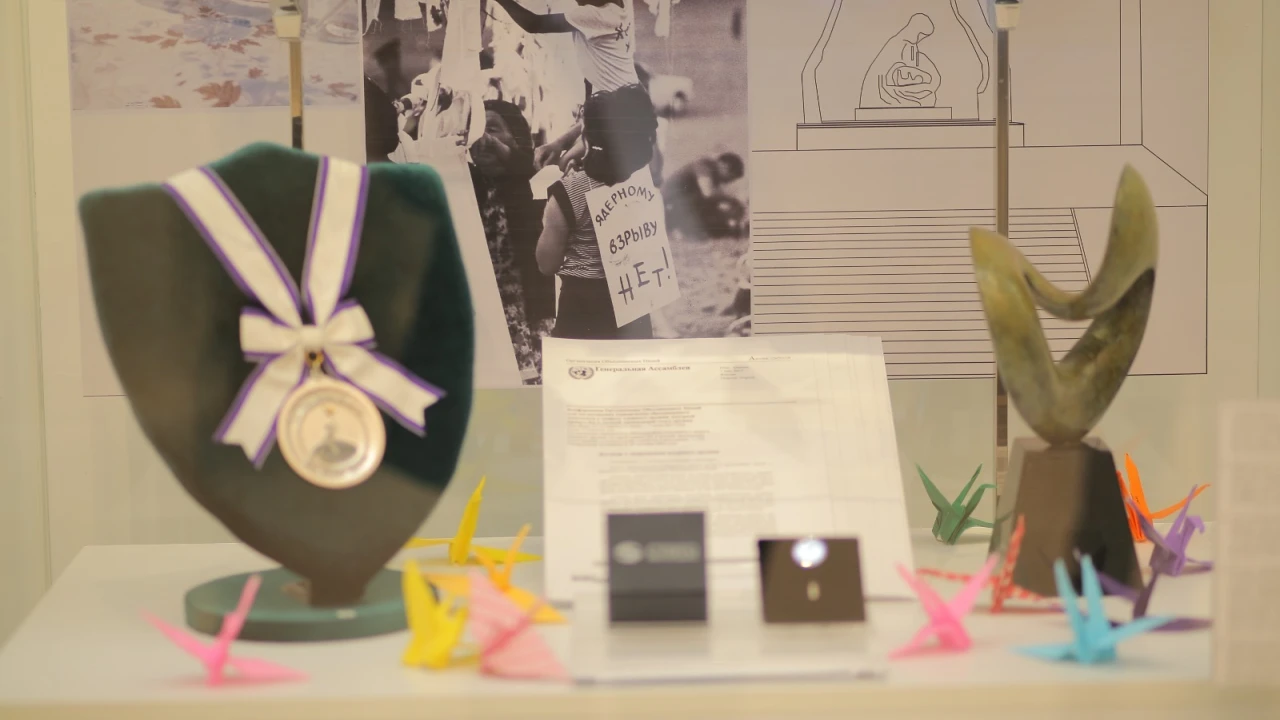
The Presidential Center of the Republic of Kazakhstan, in collaboration with the Institute of Parliamentarism, was held the International conference“Kazakhstan on the Path to a Peaceful Atom: Trends and Future Outlooks” dedicated to the 30th Anniversary of Kazakhstan's Accession to the IAEA.
The event aims to discuss the historical significance of Kazakhstan's initiatives in developing the global anti-nuclear movement, key issues of international security within the framework of cooperation between Kazakhstan and the IAEA, and the development of the peaceful nuclear industry.
Government and public figures from Kazakhstan, experts from Kazakhstan and abroad, and representatives from international organizations are invited to participate.
In his welcoming speech, Director of the Presidential Center of the Republic of Kazakhstan, Bakytzhan Temirbolat, noted that, based on the voting results, 71.12% of citizens, out of 63.66% of those who participated in the referendum, supported the construction of the nuclear power plant (NPP). Thus, the issue that had been actively discussed in the country for many years was finally resolved. The positive decision on the NPP was a logical outcome of Kazakhstan's strategic course toward the peaceful use of nuclear energy.
"Kazakhstan became the first state in the world to voluntarily renounce nuclear weapons by closing the Semipalatinsk nuclear test site and dismantling its nuclear arsenal. This initiative rightfully earned Kazakhstan the status of one of the leading nations in the global anti-nuclear movement. President K.K. Tokayev reaffirmed Kazakhstan's commitment to achieving the earliest possible entry into force of the Comprehensive Nuclear-Test-Ban Treaty from the rostrum of the UN General Assembly. Our country remains a steadfast advocate of promoting the peaceful use of nuclear energy, which includes the development of nuclear power and the production of nuclear fuel," said B. Temirbolat.In turn, Deputy Director of the Institute of Parliamentarism Berik Bekzhanov spoke about ensuring the highest level of safety in the field of nuclear energy, including the introduction of innovative technologies, the implementation of safety standards established by the International Atomic Energy Agency.
According to Berik Bekzhanov, new generation reactor designs are designed in such a way as to ensure safe operation even in extreme conditions.
"The creation of a low-enriched uranium bank has a high image rating for Kazakhstan. The international community has assessed our country as a bona fide member of the IAEA and a safe place to store nuclear materials. It is worth noting that the IAEA management highly appreciated our company as an operator of a low-enriched uranium bank. We will continue to fulfill all obligations within the framework of the signed international documents," said Sergey Bezhetskiy, Executive Chairman of the Board of ’UlbaMetallurgical Plant” JSC.
As Melissa Park, Executive Director of the International Campaign to Abolish Nuclear Weapons, emphasized: "We believe in a world in which nuclear weapons will not only be reduced, but also completely destroyed. We believe in a world in which no country, no people will ever again experience the horrors of nuclear weapons."
It is noteworthy that the conference is held in a year of important event, namely the holding of a referendum on the construction of nuclear power plant in Kazakhstan. Nuclear energy has a significant innovative potential, contributes to solving at least three interconnected global challenges of humanity. Namely, energy security, economic growth and improvement of the environmental situation," said Erlan Batyrbekov, Director General of the National Nuclear Center of the Republic of Kazakhstan.
During the discussion, participants of the Iinternational conference noted that a peaceful atom would become one of the key factors in the socio-economic growth of states in the near future.
For reference: The IAEA is strongly linked to nuclear technology and its controversial applications, either as a weapon or as a practical and useful tool. The ideas President Eisenhower expressed in his speech in 1953 helped shape the IAEA’s Statute, which 81 nations unanimously approved in October 1956.
The Agency was set up as the world’s “Atoms for Peace” organization within the United Nations family. From the beginning, it was given the mandate to work with its Member States and multiple partners worldwide to promote safe, secure and peaceful nuclear technologies.
Today, the Agency shall seek to accelerate and enlarge the contribution of atomic energy to peace, health and prosperity throughout the world. It shall ensure, so far as it is able, that assistance provided by it or at its request or under its supervision or control is not used in such a way as to further any military purpose.
The IAEA headquarters is located in Vienna (Austria). The organization also has 2 regional offices in Toronto (Canada) and Tokyo (Japan), as well as 2 liaison offices in New York (USA) and Geneva (Switzerland).
In addition, the Agency operates nuclear technology laboratories in Vienna and Seibersdorf (Austria), as well as in Monaco.
The Republic of Kazakhstan became 121th member of the International Atomic Energy Agency (IAEA) on February 14, 1994. The Agreement between the Republic of Kazakhstan and the IAEA on application of safeguards in connection with the Nuclear Non-Proliferation Treaty was signed in Almaty, and ratified by the Decree of the President of the Republic of Kazakhstan No 2344 as of June 19, 1995.
In accordance with the Safeguards Agreement, all nuclear activities in Kazakhstan are subject to the IAEA safeguards. The IAEA inspections are conducted regularly in nuclear facilities of Kazakhstan, which is aimed at checks and confirmation of number of nuclear materials and nuclear activities officially put on record by a country.
The IAEA Low Enriched Uranium Bank is located at the Ulba Metallurgical Plant in Oskemen, Kazakhstan (950 kilometers east of Astana).
The LEU Bank, which began operating in 2019, today is a physical stock of 90 metric tons of low enriched uranium hexafluoride suitable to make fuel for a typical light water reactor, the most widely used type of nuclear power reactor worldwide. The LEU contained within the Bank can be used to produce enough nuclear fuel to power a large city for three years.



